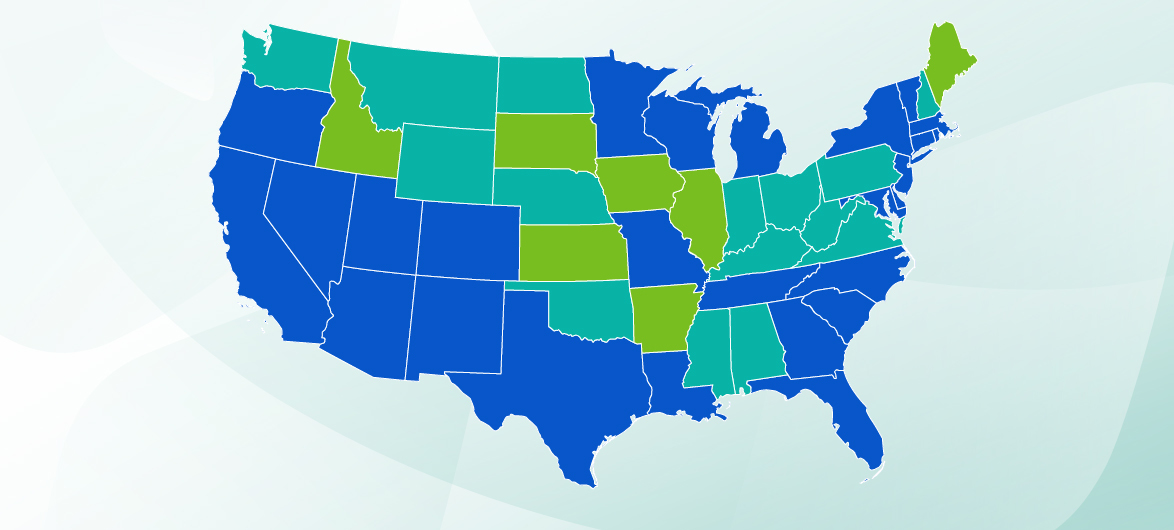Discrimination is unacceptable when it comes to hiring, and small business owners must do their absolute best to draw within the lines of federal, state and local mandates.
Still, there is a basic challenge when you’re looking to hire the most qualified individuals: How much information can you request and still be compliant with hiring laws? This is even more challenging when more and more states and cities adopt “Ban the Box” and salary history restrictions.
In some ways, these laws make the process easier because you know what you can and can’t ask. But with so many cities and states adopting restrictions at an accelerated rate, you need to be prepared should you, too, need to refrain from certain questions on job applications and during the interview process.
List of Cities and States Is Growing
As of June 2019, more than 35 states, the District of Columbia and more than 150 cities and counties have “Ban the Box” laws, and
18 states and Puerto Rico now regulate questions related to salary history.
More than 258 million US residents — 75% of the U.S. population — fall within “ban the box” states.
– National Employment Law Project
The goal of each law is to encourage employers to review applicants on their skills and qualifications without judgement.
“Ban the box” legislation is designed to provide a fair chance at employment to individuals with a criminal history. Some states completely ban an employer from asking a criminal history question such as “Have you ever been convicted of a crime?” on a job application. Other states have in place some form of limitation on the criminal history information employers may request. These laws encourage employers to consider a candidate’s qualifications first, rather than rejecting them outright due to a criminal past.
The ban on salary history is gaining significant momentum largely due to concerns about gender- and race-based wage discrimination. The law is designed to prevent employers from using past compensation as a basis for current salary and benefits negotiations. So, if a candidate was underpaid in a previous job, a prospective employer can’t ask about salary history and use historical low-pay to position its offer.
Are You Prevented from Asking These Questions?
“Ban the box” and salary history bans are not federal laws, so you need to check with your local or state agencies to see if your business is affected. If you’re not in a jurisdiction that enforces these laws already, chances are good you will be soon. If these laws affect your business now, you must change recruitment practices immediately. To ensure you remain compliant:
Remove criminal record and salary history questions from job applications. If you keep these questions on your application and indicate responses are voluntary, you’re still in violation. Similarly, adding a disclaimer that “applicants from places where the ban is in effect need not answer the question” doesn’t excuse you from liability either.
Change screening and interview processes to avoid inappropriate questions. If you’ve been in the habit of asking these questions in the past, it’s imperative that you, your staff and any agencies you use to recruit employees refrain from all language that even hints at criminal records and salary history. Just one person in the hiring process asking the wrong question could open your company to possible legal action.
Offer training to all staff involved in hiring. Personnel involved with hiring should be trained on questions considered both appropriate and inappropriate. Staff need to know when they can ask about criminal records and how they should frame questions about salary requirements.
Use the Right Resources to Stay Compliant
Hiring is safer from potential landmines when you leverage resources that help you protect your business. The
Job Application Smart App is updated regularly to comply with your state’s requirements so you’re always up to date, protecting you from avoidable and costly legal mistakes. In addition, you can send proper applications securely online to more candidates — eliminating handwritten forms and extending your recruiting reach, thereby creating a more efficient screening process.
States with Complete “Ban the Box” Laws for Private Employers:
California
Colorado – (Effective Sept. 2019 for employers with 11 or more employees and for all employees in Sept. 2021)
Connecticut
Hawaii
Illinois
Massachusetts
Minnesota
New Jersey
New Mexico
Oregon
Rhode Island
Vermont
Washington
States with Salary History Bans for Private Employers:
Alabama* – (Effective Sept. 2019)
California
Colorado – (Effective Jan. 2021)
Connecticut
Delaware
Hawaii
Maine (Effective Sept. 2019)
Massachusetts
New York (Effective Jan. 2020)
Oregon
Vermont
Washington
*Alabama does not explicitly prohibit employers from asking about salary history but employers are prohibited from refusing to interview, hire, promote, or employ an applicant or retaliate against an applicant for refusing to provide wage history.
Key Takeaways
- More and more states, counties and cities are adopting “ban the box” and salary history bans.
- It’s imperative to know if you are affected by either of these bans.
- Make sure you know what you can and can’t ask during the hiring process.
- Training and legally sound resources prepare you for hiring success.






